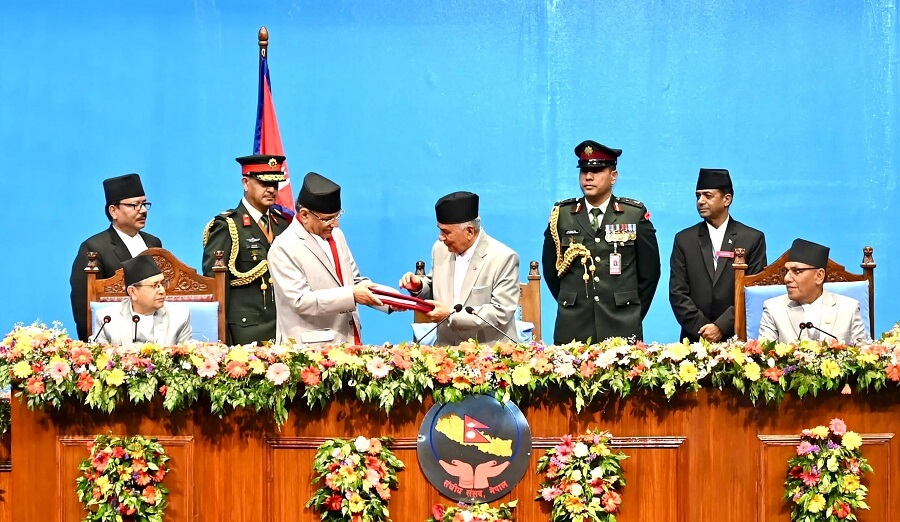
Government's Education Policies and Programs for the Upcoming Fiscal Year 2081 / 2082
Ban on Political Party Membership for Educators
The government of Nepal has announced strict enforcement of the rule prohibiting professors, teachers, and employees of government, community, and institutional schools from being members of political parties. This measure will be fully implemented in the upcoming fiscal year's policies and programs. Education Minister Sumana Shrestha has previously issued directives for action against teachers affiliated with political parties.
Monthly Salary for Teachers
On 1st Jestha 2081, President Ramchandra Paudel presented new policies and programs in Parliament, including the provision of a monthly salary for teachers, who previously received their salaries quarterly. Some local levels had already been providing monthly salaries. Additionally, the government will offer scholarships and leadership development opportunities to make the teaching profession more attractive and dignified.
Addressing Teacher Shortages
To tackle the shortage of around 56,000 teachers, particularly in English, mathematics, and science, the government plans to send university students for teaching internships with proper evaluations. Furthermore, individuals with minimum qualifications from non-Education faculties will be allowed to enter the teaching service.
Scholarships and Career Counseling
The underprivileged targeted scholarship program will be extended up to class 12. The government will also introduce career counseling programs in public schools and facilitate visas for foreign students, addressing complaints about the difficulties they face in obtaining visas to study in Nepal.
Basic and Non-Formal Education Initiatives
The government aims to provide basic education to all children within the next five years. Alternative non-formal education will be offered to children who are out of school. Knowledge, skills, and experience from senior citizens will be transferred to the younger generation through necessary arrangements.
Mid-Day Meal Program and Smart School Concept
Concerns about junk food in mid-day meals up to class 5 will be addressed. The "One City One Smart School" concept from the previous year will continue, with five schools associated with the Shahid Foundation Nepal operating centrally and expanding to each province.
Higher Education and Technical Training
Higher education students will receive basic training in government functioning and will participate in non-formal education and community development activities during academic leave. Technical schools will be managed at the state level, and local levels will be encouraged to run technical programs in community schools.
University Curriculum and Medical Colleges
University curricula will be revised to include science, communication, and information technology subjects. A new medical college with a 300-bed capacity and an academic program will be launched at Shahid Dashrath Chand University of Health Sciences in Geta, Far West. The Pokhara Institute of Health Sciences will begin undergraduate classes in the Faculty of Medicine this year. Preparations for establishing and operating medical colleges in Udayapur, Morang, Parsa, Chitwan, and other locations are underway, including a hospital under Eastern University.
Conclusion
The government's comprehensive education policies and programs aim to improve the quality of education, address teacher shortages, and make education more accessible and attractive. These initiatives reflect a commitment to enhancing the educational landscape and ensuring that both students and teachers benefit from improved conditions and opportunities.





